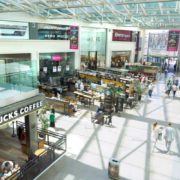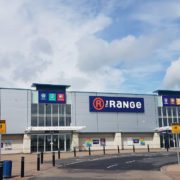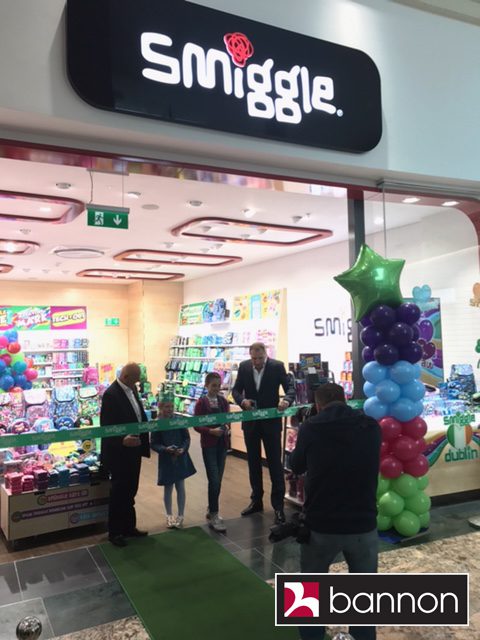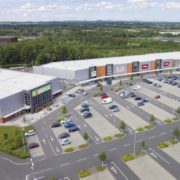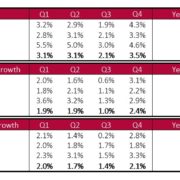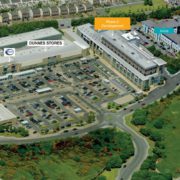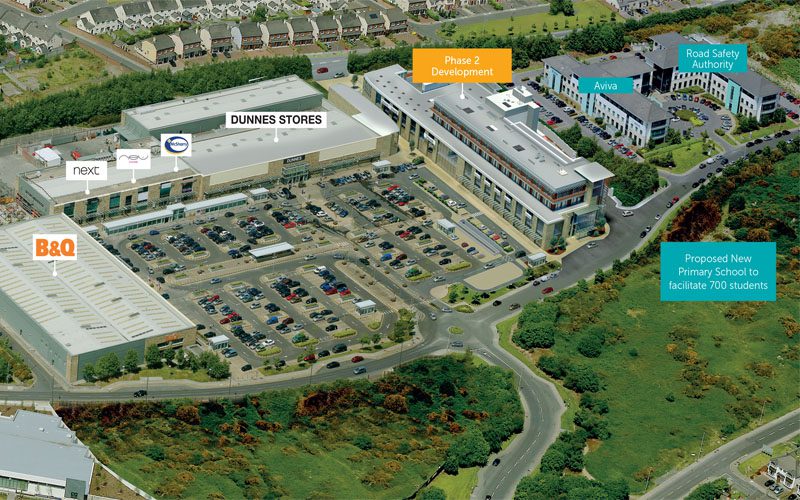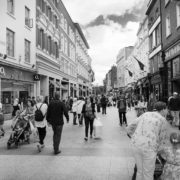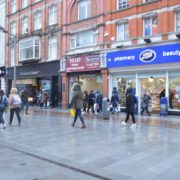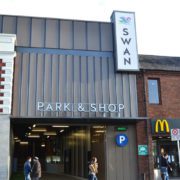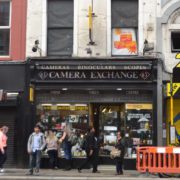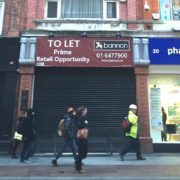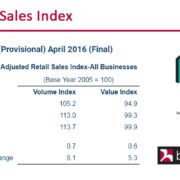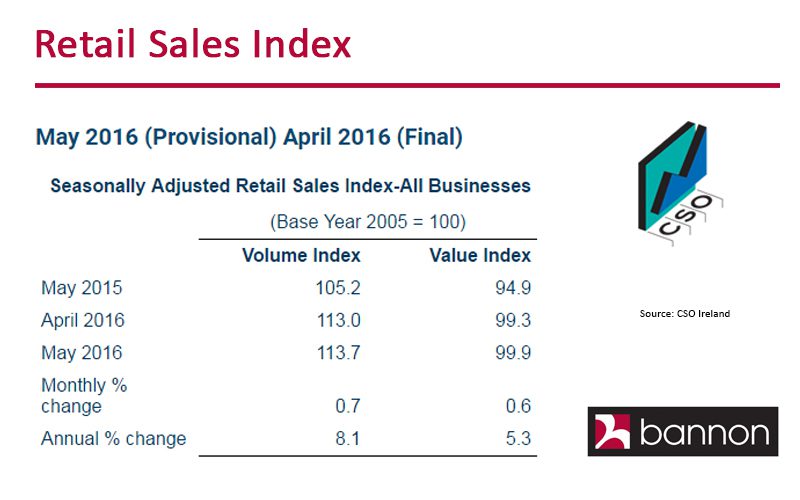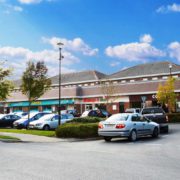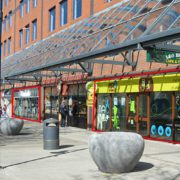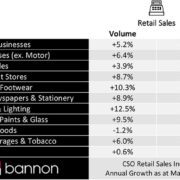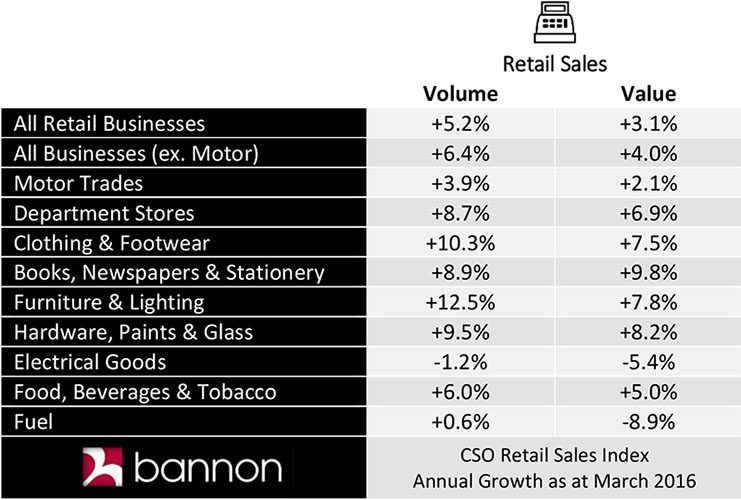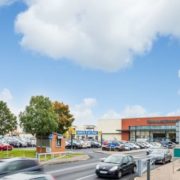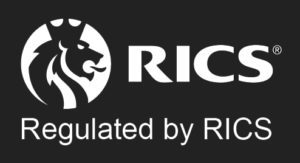German architect outlines his vision for Dublin’s north inner city
The man given the task of regenerating a significant portion of Dublin’s north inner city is nicknamed Golden Boots but when Friedrich Ludewig arrived in Ireland this week to outline his vision, he was wearing a comparatively sober pair of grey leopard print boots instead. The boots matched his coat.
The retail property developer Hammerson, which is behind the Dublin Central redevelopment covering six acres from Upper O’Connell Street to Parnell Street to Moore Street and Henry Street, has recruited the award-winning and distinctly dapper German architect to oversee the project and they are optimistic he will get it over the line.
It will be a long time coming.
Plans drawn up by previous owners almost a decade ago fell foul of the crash and of planners and of the families of the 1916 rebels who joined forces to fight for the future of Moore Street and to stop the area being turned into a shopping mall.
Today the plans for a shopping mall on the site appear dead and Ludewig’s ideas focus instead on urban regeneration and the creation of a warren of streets and squares to reinvigorate the area while respecting its place in history.
“The plan was to build a shopping centre but that is not what it should be about,” he told The Irish Times as he walked the site on Thursday evening. “That is not what urban regeneration is about.”
He had clearly done his history homework ahead of a series of meetings with stakeholders this week. And on the day he was officially unveiled as the architect responsible for creating Dublin Central he could pinpoint exactly where the 1916 rebels fled the GPO and he effortlessly plotted the route they took towards Moore Street.
“This is probably the most political project I have worked on but maybe not the most historic. Certainly my Chester client would dispute that. But there is a difference between working with Roman history and working with history where the direct descendants of those involved are still alive,” he said.
Brass plaques
Standing on Moore Lane behind Moore St, he pointed out that “many things that happened here between the Friday afternoon and the Saturday lunchtime happened not in the buildings but on the streets”.
He pointed to the granite cobble stones peeping out from under a blanket of tar beneath his boots.
“It would be nice to work with these and use ornamental brass plaques in the ground to tell the story of what happened on the streets, creating less of a museum experience and more of an experience which people can stumble upon and find things almost by accident.”
While 14-17 Moore St, where the rebels made their last stand, will be preserved as a national monument, other houses on the street will make way for the new.
“If some of these structures are 1960s crap with nothing behind them, it would be better to rebuild so they can complement buildings 14 to 17,” he said.
He also wants to create a better space for Moore Street market traders rather than pushing them out.
His tour of the plot brought him to O’Connell Street.
“One of the reasons the top of this street is so quiet is that all the pedestrian traffic turns into Henry St. There is a need for more connectivity between the two areas and what we are suggesting is a laneway from Moore Street to O’Connell Street. It won’t have to be big and what we are thinking is that we can go through number 19 Moore St although we are happy to discuss that.”
Prime street
He compares O’Connell Street to the Champs Elysee “in that it is the prime street of Dublin but we really have to change people’s perception of it and we have to stop it being [seen] as seedy. We need to work out ways to make people stay on all these streets so they becomes a place not just to walk through but to stop in.”
Simon Betty, the retail director of Hammerson in Ireland, suggested the project could be completed within four years creating 9,000 jobs – 6,000 in the construction and 3,000 long-term jobs in retail and office space created as part of the scheme.
“But this [is] not a race,” he insisted. “This is something we have to do right. We are about long-term investment and long-term returns and if we have to hit pause at the beginning for a period to make sure it is right then we are happy to do that.”
His words were welcomed by Brian O’Neill the chairman of the 1916 Families Committee. “We are in a much better place now than we were when we were dealing with the previous owners of the land,” he said.
“We have seen some positive things happen in recent weeks and Hammerson have started to engage with us but trust has to be built. They are now saying they don’t want to build a shopping centre and that is a very positive development.”


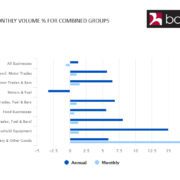


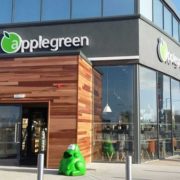

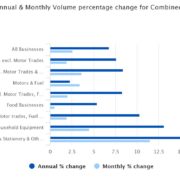
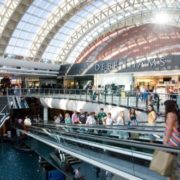
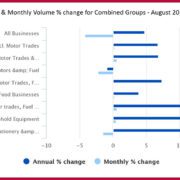

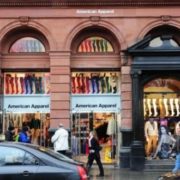
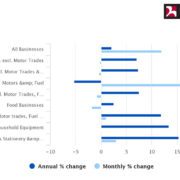
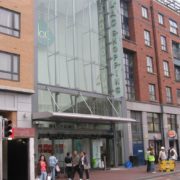

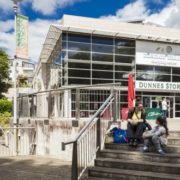

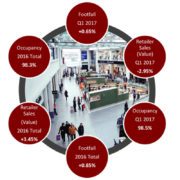
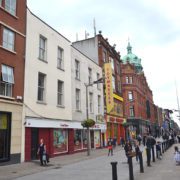
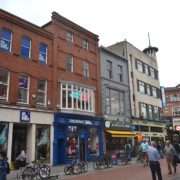
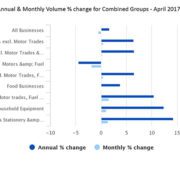

 Friendly staff were joined by Captain Range, the company’s own mascot and Livvie the Bear from The Retail Park, to welcome customers to the store. Once open, shoppers packed inside their new store to find themselves some fantastic bargains.
Friendly staff were joined by Captain Range, the company’s own mascot and Livvie the Bear from The Retail Park, to welcome customers to the store. Once open, shoppers packed inside their new store to find themselves some fantastic bargains.